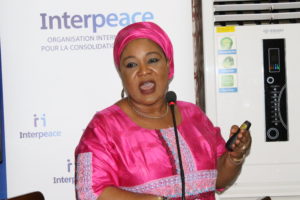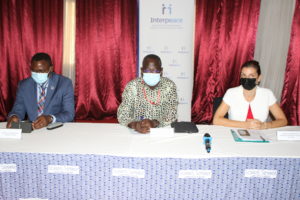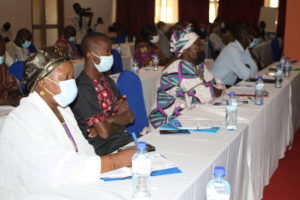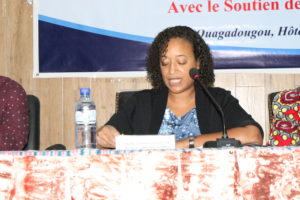Creating pathways to sustainable peace in Burkina Faso: the nexus in action
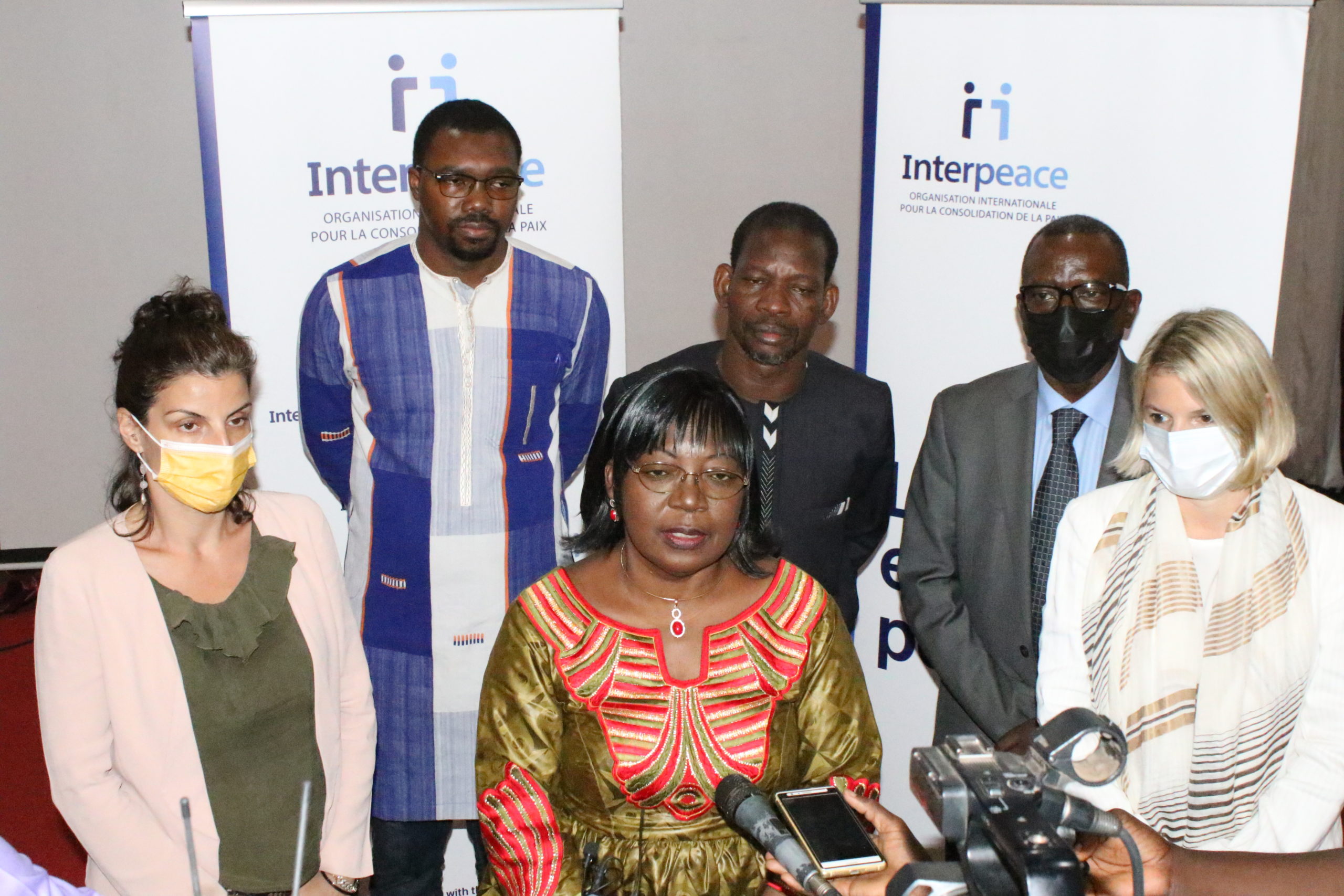
Addressing the immediate needs of people affected by conflict as well as the underlying causes of prolonged crises, requires coherent synergy, effective coordination and a long-term commitment by humanitarian, development and peacebuilding actors.
The recurring and multifaceted nature of conflicts around the world today - and particularly in Burkina Faso - underlines the need for a closer collaboration and deeper coordination by these actors in the humanitarian, development and peacebuilding sector.
Humanitarian and development actors are becoming aware of the need to invest more in interventions that contribute to ending need and enhancing peace at the same time. Recognizing this, the United Nations System in Burkina Faso mandated Interpeace, through UNDP, to conduct a study that maps the capacities of these actors for the operationalization of the humanitarian-development-peace nexus approach.
- Credits: Interpeace
After conducting an analysis of the capacities of actors from these three sectors in Burkina Faso, Interpeace and the United Nations Development Programme (UNDP) have gathered key actors to operationalize a platform for humanitarian-development-peace nexus in the country. The two-day workshop in the capital Ouagadougou, from 01 to 02 July 2021, was attended by nearly one hundred participants representing all relevant stakeholders.
“Despite the present security challenges making actions on the ground difficult, we must not abandon the vulnerable populations. This is the challenge for humanitarian, development and peacebuilding actors, hence the importance of making the nexus operational in Burkina Faso,” explained Metsi Makhetha, Resident Coordinator of the United Nations System in Burkina Faso.
The study carried out by Interpeace for nearly one year focused on the mechanisms for coordinating actions, organisational adaptation, the inclusion of local actors in the project lifecycle, as well as the financing mechanisms of technical and financial partners.
“We must insist on the need for a multidimensional and holistic approach to respond to the multidimensional nature of the challenges facing Burkina Faso,” said Mathieu Ciowela, UNDP’s Resident Representative, who described the Nexus as an accelerator for the United Nation’s agenda 2030.
One of the key recommendations made by the populations themselves was the need to involve them more throughout the process from assessing their needs through implementation to monitoring and evaluation of projects.
“The nexus will be operationalized in the Centre-North [region] because the actors are now aware of the approach. There are organisations that have already integrated the approach into the planning of their activities. We will play our part to strengthen the synergy of actions among all stakeholders in the region,” explained Adama Sawago, the regional council president for Burkina Faso’s Centre-North region.
- Credits: Interpeace
“The inclusion of all is needed to build the interventions around consensual tools that could enhance the synergy of action among actors and respond better to the needs of the populations,” said Charles Dalla, the Director General of Territorial Development who represented the minister delegate in charge of territorial planning.
Participants at the workshop expressed satisfaction with the quality of data from the Interpeace research and appreciated the rich discussions they had on the findings. Some recommendations were made at the end of the workshop, which if implemented, will facilitate the operationalization of the Nexus approach.
“Beyond the coordination and consistency of interventions for the benefit of the people, establishing a humanitarian-development-peace nexus is a real accelerator for development in Burkina Faso. It is therefore imperative to implement it urgently by putting in place a credible, inclusive and participatory structure, mobilise political actors and involve local actors,” said Cheick Faycal Traore, Interpeace Country Representative in Burkina Faso.
Some of the recommendations from the study include: a call for the process to be given political validation and anchored in national institutions in line with mechanisms of the national development repository; the creation of a technical committee to support, guide and develop the tools needed to implement the nexus; develop an interactive database that presents, in real time, an overview of the humanitarian, development and peacebuilding interventions carried out by both the government and technical and financial partners; pilot the new approach in the regions first, especially in those areas where the study was carried out and use the evidence and lessons learned to scale it up at national level; strengthen the coordination, flexibility and duration of funding in order to facilitate access by local actors and taking into account emergencies; strengthen the role of deconcentrated and decentralized actors, civil society and the concerned populations in the project life cycle; and deepen the work of the Troïka – a framework for consulting technical and financial partners - on joint analysis and data sharing.
The inclusive study by Interpeace was carried out in three of the country’s administrative regions – the Sahel region, Boucle du Mouhoun region and the Centre-North region. Data was collected from individual interviews, focus group discussions and literature review.
